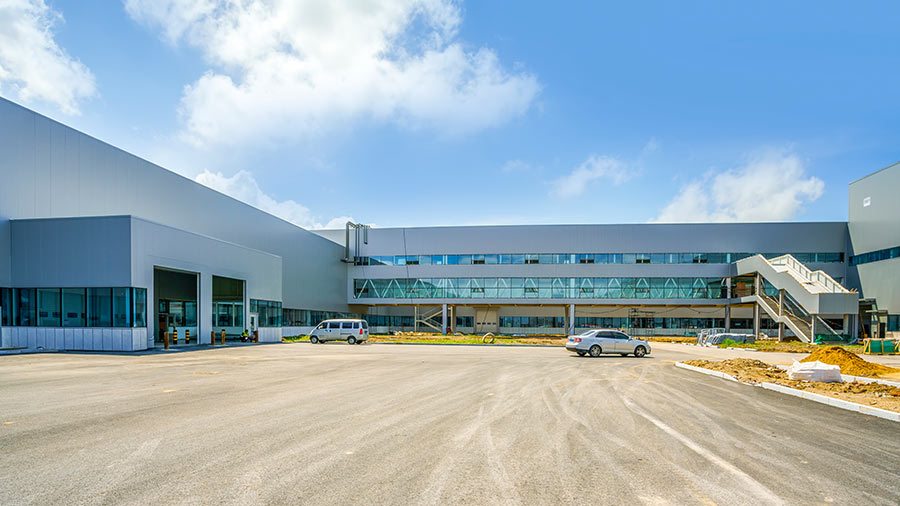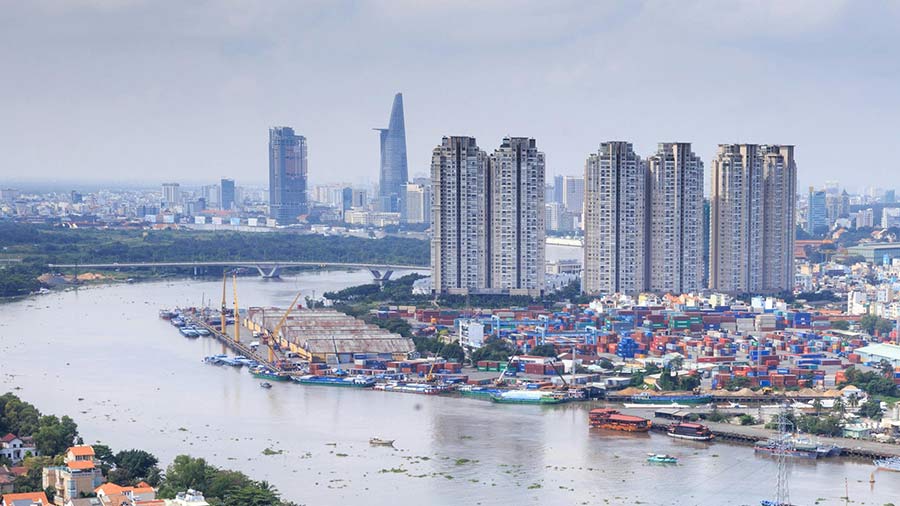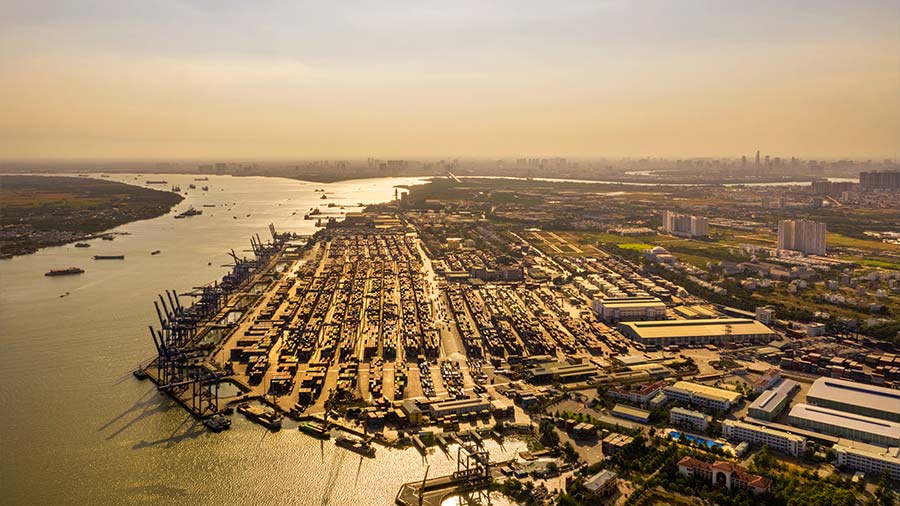In this section, we discuss the various options that a business has for market entry into Vietnam and overview the entity types, requirements, and processes, as well as some key considerations that will help ensure a company is set up for success.
There are also tips for what the procedures are if you are seeking a Vietnam presence without first setting up a legal entity, and what the procedures are for closing a business, should the need arise.
Establishing a company typically requires moderate or greater amounts of investment capital than other entry modes and can require several months to complete all steps in the process, before the company becomes operational. This is an expected risk of a fixed investment strategy, and for these reasons, it is important that investors first understand the Vietnam business, financial, consumer, or local cultural landscapes, and the options that might best help realize the goals of the investment.
Choosing a corporate structure
Vietnam permits 100% foreign ownership of a business for most sectors. Yet before choosing which type of company to open in Vietnam, it is important to consider different aspects of the target entity types, such as differences in structure, legal liability, statutory compliance requirements, time required to establish it, what types of activities it can engage in, and more. These considerations help to identify the appropriate business constraints, costs, requirements and risks, necessary to enable the company’s future targeted capabilities, developments, and growth. The below links explain these factors for each of the main entity types that can be set up in Vietnam.
There are several types of foreign-invested corporate vehicles in Vietnam, the 3 more common of these are:
|
Comparison of Business Structures |
||||
|
|
RO Representative Office |
BO Branch Office |
LLC 100% Foreign-Owned Enterprise |
|
|
Separate legal entity |
No |
No |
Yes |
|
|
Liability |
Extension of parent company |
Extension of parent company |
Liability limited to capital contribution. |
|
|
Naming of the Entity |
Must be same as parent company |
Must be same as parent company |
Can be the same or different from parent company |
|
|
Permitted Activities |
Only market research and coordination. No business activities that yield profit.
|
Commercial activity within parent company’s scope |
Can be the same or different from the parent company |
|
|
How many Weeks to set up this Entity Type? |
6 to 8 weeks |
12 weeks |
8 to 16 weeks |
|
|
Is an Annual Tax Return filing required?
|
No.
|
Yes |
Yes |
|
|
Audit required?
|
Yes. RO is required to file an annual RO's activities Report prepared by itself to be submitted to the licensing authority, not through an independent auditing firm. |
Yes |
Yes |
|
|
Summary of Pros |
Easy registration procedure |
Can remit profits abroad |
· Limited liability to capital contribution · Freely engage in any registered business lines that are not banned by local laws |
|
|
Summary of Cons |
|
|
|
|
To read further details about any of these entity types, click on the FIE Structure Type to read from more in our Types of Business in Vietnam guide section.
Company set up process in Vietnam
An LLC, or 100 percent Foreign-Owned Enterprise, generally requires 3 to 4 months to establish in Vietnam. A Representative office can generally be set up in half that time.
For LLCs, while some sectors may require a ‘Pre-Investment Approval’, most skip to their service provider directly applying for the required Investment Registration Certificate (IRC), which requires 15 working days, unless the sector of intended operation is not governed by the WTO, in which case it may take longer. This step may include securing a physical business address to be aligned with the master plans in case the to-be-registered business lines have special requirements regarding the location.
With the IRC in hand, an organization may pursue the subsequent steps, applying for an Enterprise Registration Certificate.
|
Step |
Name |
Description |
Documentation Required |
Processing Time |
|
Step 01 |
Pre-investment Approval |
For some types of investment, companies need to seek the approval of Vietnamese authorities prior to starting establishment procedures. Varies in timeframe and documentation required. |
Varies depending on type of investment. |
Varies |
|
Step 02 |
Investment Registration Certificate (IRC) Application |
Required of all projects seeking to set up new entities in Vietnam regardless of foreign ownership percentage. |
|
From 15 working days |
|
Step 03 |
Enterprise Registration Certificate (ERC) Application |
Required of all projects seeking to set up new entities in Vietnam. |
|
From 3 working days |
|
Step 04 |
Post Licensing Procedures |
Includes:
|
Not specifically listed; relates to business operational compliance. |
~30 working days |
|
* Financial statement/Bank Letter of Investors is not mandatory to obtain ERC. |
||||
Requirements for setting up a business
Minimum capital requirements
For most sectors and business lines, Vietnam requires no minimum capital requirements. However, the registered capital will be assessed by The Department of Planning and Investment for whether it is adequate to cover the expenses of the business until it generates enough revenue to cover its costs, usually for the first year or two of operation, based on the calculation of the investors. It is possible to set up a basic business services company with less than USD 10,000 in some cases, but in most cases, it would be at or above this threshold, depending on the nature of the business, and which province/city the business is located.
Under the prevailing regulations, some industry sectors required a minimum capital, including:
- Security;
- Multiple-level sales;
- Education, language centers, or, vacational schools;
- Transportations;
- Banking;
- Finance;
- Insurance;
- Postage and telecommunication;
- Sports; and,
- Tourism.
Charter capital and total investment capital
The total investment capital of the company can combine both charter capital and loan capital. Loan capital, or mobilized capital, covers shareholders’ loans or third-party finance. Charter capital, or contributed capital, together with loan capital (if any) must be registered with the license issuing authority of Vietnam. Please note that mobilized capital is not always required to be registered, which means the total investment capital may be equal to the contributed capital.
Once approved, Investors cannot increase or decrease the charter capital amount without prior approval to make amendments from the local licensing authority.
Capital contribution schedules
Capital contribution schedule shall be specified first in the IRC, company charter.
Members and owners of a limited liability company (LLC) must contribute charter capital within the capital contribution schedules set out in these documents and within the contribution timeframes established by the Law on Enterprises.
Transferring capital to the FIE
To transfer capital into Vietnam, after setting up the FIE, foreign investors must open a direct investment capital account (DICA) in a legally licensed bank.
Registered address and resident director
Company registered address
A business requires a legal address in Vietnam in order to incorporate a company in the country. Most businesses require that it have its own physical location, such as an office or building leased or acquired.
Legal Representative
A company is required to have a Legal Representative (LR) – and may have one or more. A qualifying resident director requires a residential address in Vietnam. Please note that the address in Vietnam is required to register as current address of the LR in the ERC for establishment; Their residency status may be addressed separately.
Corporate compliance requirements
An established corporation in Vietnam will require ongoing corporate compliance, including:
|
Type |
Description of Areas of Compliance |
|
Accounting and Tax Compliance |
Maintain accounting and tax reporting in line with Vietnamese regulations. This includes annual and quarterly filings for corporate income tax, value-added tax (VAT), and other relevant taxes. There may also be ad-hoc or periodic filings related to import/export taxes and the annual business license tax. |
|
Annual Audit Compliance |
Limited Liability Companies (LLCs) must file annual audit reports on time according to Vietnam’s finalization calendar. Financial statements must be reviewed by an independent Vietnamese auditing company at the end of each fiscal year. Representative Offices (ROs) of foreign traders are not required to undergo an annual audit, but must submit an Annual RO Activity Report prepared internally to the licensing authority. |
|
Employment Compliance |
When hiring employees, the company must follow Vietnam’s labor laws, including:
|
|
Business License Tax and Special License Compliance |
Pay the annual business license tax starting from the second business year. Certain industries may require additional special business licenses, which must be maintained and renewed as required*. |
|
Foreign Investment Report Compliance |
Submit foreign investment reports on a quarterly, semi-annual, and annual basis. This includes:
|
|
*Special license compliance means that, beyond the standard business license tax that all companies pay, certain industries or business activities require additional sector-specific licenses, permits, or approvals to operate legally. |
|
FAQ: Other Considerations When Setting up a Business in Vietnam
How can I choose the right way to enter the Vietnam?
Start With the Right Plan and Support. As with any foreign country, Vietnam’s legal entity requirements, options and processes are unique, and establishing a legal entity requires the various costs of such an investment, time, and can bear other investment risks. Once investments are made, reversing strategies can be more challenging so it is vital that a company avoid missteps from the outset.
To optimize the chances for success, a business would do well to have better
- Informed and guided business model;
- Selection of business partners or suppliers to work with;
- Options for initial service lines, products, and pricing models;
- Options to set up in the right locations and more.
Obtaining on-the-ground information and practical experience in the market, can significantly help in these areas, and help position an enterprise for successes in Vietnam. Besides researching this Doing Business in Vietnam guide thoroughly, it is advisable to leverage professional assistance for further guidance with pre-market entry, investment decisions, entity set up, and all business, operational, and financial factors that will arise along the path to achieving your investment objectives. In this respect, the contributors of this Guide are available to provide this expertise, via the Chat or Contact us link buttons.
What should I consider when choosing a location in Vietnam?
Vietnam is a diverse country, where each industry, market, and location are different and one size does not fit all. To evaluate potential locations, there are numerous factors to consider including, the availability of materials, government policy, taxation, proximity to market, labor availability, incentives, infrastructure, local laws, and political stability.
To gain certainty with location selection, business investors are advised to employ a location-by-location comparative approach is essential for identifying which locations provides the best opportunity and optimally suits their needs. In some cases, this may require that a rigorous Location Selection process be undertaken, entailing a market study, a comparison model, long listing locations and screening, due diligence, and a final site selections, and arrangement of site visits.
Available download: Finding an Ideal Location – Utilizing Vietnam’s Economic Regions.
What are the steps to open a bank account in Vietnam?
One of the first decisions that will have to be made by investors is that of banking. Upon entering the Vietnamese market, foreign investors who wish to remit profits to their home markets will be required to open a
For companies considering investment in Vietnam, it is important to note that, while the use of direct investment capital account becomes important at the latter stage of the remittance process, it is in fact important to finalize banking arrangements on the front end of the investment.
For companies that have already established operations in Vietnam, direct investment capital account will have been set up during the transfer of funds to capitalize on given projects.
Understanding which actions require the use of a direct investment capital account, where restrictions are placed upon these types of accounts, and what documents must be prepared will all ensure that operations are optimized effectively.
How well-developed is Vietnam’s IP protection environment?
As Vietnam develops as an economy and becomes more integrated globally, partly through its free trade agreements, IP rights have become a highly important factor in how organizations view the business climate in Vietnam. Vietnam is thus keenly developing its IP laws to help further support its attractiveness and, at the same time, participates in numerous international IP conventions, notably as follows:
- The Paris Convention for the Protection of Industrial Property,
- The Berne Convention for the Protection of Literary and Artistic Works,
- The Rome Convention,
- The Trade-Related Aspects of Intellectual Property Rights (TRIPS) Agreement,
- The Patent Cooperation Treaty,
- The Madrid Protocol and
- The Hague Agreement.
- Free Trade Agreement between Viet Nam and the European Union;
- Comprehensive and Progressive Agreement for Trans-Pacific Partnership
Vietnam’s IP system is divided into three areas as shown in the below table, together with the respective administration organ.
|
Vietnam’s 3 Main Intellectual Property Protection Offices |
|
|
IP area |
Administered by |
|
Copyright and related rights |
|
|
Industrial property rights |
The National Office of Intellectual Property (NOIP); |
|
Rights to plant varieties |
|
These offices function in conjunction with international conventions in most regards, though some unique treatment distinctions and protection time limits exist, that companies should be aware of.
What are the alternatives to setting up an LLC or FIE in Vietnam?
A company can choose from several business types options when aiming to enter Vietnam: A 100% Foreign-Owned Enterprise in the form of an “LLC” (Limited Liability Company) or Joint-Stock Company; a Branch Office; a Joint Venture; or a Public Private Partnership. Each of these types may require a significant period of time and investment to set up and may bring about certain amounts of risk to the investment.
Aside from setting up a corporation, there are a few other alternatives that are available that may help a company to get started doing business in, and with Vietnam, in shorter periods of time and with less risk, as are detailed below in this section.
Representative office
One such type is a Representative Office (RO), which offers a low-cost entry option for many companies, and are among the most common for companies that are first-time entrants to the Vietnamese market. RO are often suitable for companies that may be seeking to gain a better understanding of the Vietnamese market with a smaller initial investment, and may be used to pave the way for a larger presence within the country in future years.
ROs are currently permitted to engage in the following activities:
- Conducting market research;
- Acting as a liaison office for its parent company;
- Promoting the activities of its head office through meetings and other activities that leads to business at later stages.
Employer of Record in Vietnam: Get started without an entity
An increasingly well-known alternative to establishing an entity worldwide, is that of the EOR (Employer Of Record) model often provided by a Professional Employer Organization (PEO). This model can allow a company in one country to hire employees in another country, without first establishing a company or representative office.
An increasing number of firms today are beginning their market entry in this manner, to first learn about and test a market before making a larger commitment to it. Other companies use the model to meet short-term project-based needs in a country. Whichever the case, companies enjoy a lower cost route to market, which helps to hedge against the risks more inherent to fixed investment entry.
In Vietnam, PEO services can enable foreign investors to compliantly onboard, manage and ensure the payment of people, without the costs and risks associated with setting up a legal entity – in the short-term. This enables companies to place boots on the ground, without needing to physically set up a establishment, which can save companies time and money. Your PEO provider would put your employees on their payroll, and take care of maintaining compliance with all local employment laws, and could assist you in sourcing and recruiting candidates in Vietnam as well.
Importer of Record in Vietnam: Fast-tracking your supply chain
An Importer of Record (IOR) in Vietnam is not just a middleman—it is the legally recognized individual or entity responsible for ensuring that your imported products fully comply with Vietnamese laws and regulations. This role covers a wide spectrum of activities, from preparing the right documentation and classifying goods accurately, to paying duties and taxes, and securing the necessary import permits and licenses.
In practice, the IOR can be the owner, purchaser, or a licensed customs broker empowered through a Power of Attorney (POA). They are the party that customs authorities hold accountable for the shipment, meaning they also assume financial liability for duties, tariffs, and compliance with local regulations. In Vietnam, this includes:
- Creating and maintaining a compliant list of imported products.
- Handling all duties, taxes, and other statutory fees.
- Clearing goods efficiently through customs.
- Ensuring delivery to the final destination without legal or logistical complications.
By managing these legal and administrative requirements, the IOR eliminates the need for foreign businesses to set up a local entity solely for import purposes—effectively fast-tracking market entry. This can be a critical advantage, especially since certain Vietnamese import permits, certificates, and licenses take considerable time and local knowledge to obtain. Without an IOR, businesses risk delays in production, distribution, and operations, which can directly translate into lost revenue and market opportunities.
Because the IOR is ultimately liable for the shipment and its compliance status, they play a crucial role in preventing costly mistakes such as misclassification of goods, incorrect valuation, or shipment seizures. In short, the IOR serves as your compliance guardian and logistics enabler in Vietnam, ensuring your supply chain flows smoothly from port to production line.
How difficult is it to close a business in Vietnam?
Closing a business in Vietnam requires a number of steps over an extended time process. It may take time for executives to become fully aware of the responsibilities they can face in dissolving or liquidating a company, but they are somewhat extensive. Here is a very brief summary of the procedural stages required to close a business in Vietnam:
- Issue a decision of dissolution statement.
- Numerous Steps in Debt resolution.
- Closing of the corporate tax code.
- Bank account closure and stamp destruction.
- Submission of a dossier to the provincial Department of Finance (DOF).



























